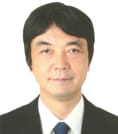- JST Home
- /
- Strategic Basic Research Programs
- /
 CREST
CREST- /
- Research Director/
- Innovation in chemical reactions through active control of electrons and ions for production/
- [Innovative reactions] Year Started : 2019
[Innovative reactions] Year Started : 2019
Hajime Ito
Solid-state organic synthesis with redox mechanochemistry
Grant No.:JPMJCR19R1
Research Director
Hajime Ito

Professor
Faculty of Engineering, Division of Chemical Process Engineering
Hokkaido University
Collaborator
| Hikaru Takaya | Professor Faculty Life & Environmental Sciences Teikyo University of Science |
| Satoshi Maeda | Professor Faculty of Science, Department of Chemistry Hokkaido University |
| Akiko Yagi | Designated Associate Professor Institute of Transformative bio-Molecules Nagoya University |
Outline
Synthetic organic chemistry provides advanced materials necessary for mankind such as pharmaceuticals and electronic materials, but the use of organic solvents is a bottleneck in terms of environmental impact and cost. In this study, we will establish “solid organic synthetic chemistry” that does not use organic solvents, using a new technology called “redox mechanochemistry” developed by us. This research not only reduces the cost of organic synthesis, but also enables the development of new materials that have not been studied due to their low solubility.
Kazuhiro Chiba
Dehydration-condensation reaction by electron transfer control
Grant No.:JPMJCR19R2
Research Director
Kazuhiro Chiba

President
Tokyo University of Agriculture and Technology
Collaborator
| Masanobu Uchiyama | Professor Graduate School of Pharmaceutical Sciences The University of Tokyo |
| Akio Saito | Professor Institute of Global Innovation Research Tokyo University of Agriculture and Technology |
Outline
In this project, we construct an electron relay system that promotes the generation and reaction of open-shell molecules to achieve an electron-transfer dehydration-condensation method. By using wide variety of medium molecule peptides as model compounds, the system minimizes the amount of waste from chemical reactions, and built a multi-step dehydration condensation reaction system to achieve high purity and high yield production. In this way, we will fundamentally change the concept of mass consumption of reagents and reaction solutions in conventional chemical methods, and aim to develop the innovative chemical production by electron transfer and photo irradiation process.
Tomohiro Nozaki
Developing nonthermal plasma enabled electron-driven catalysis
Grant No.:JPMJCR19R3
Research Director
Tomohiro Nozaki

Professor
School of Engineering
Institute of Science Tokyo
Collaborator
| Hyunha Kim | Leader Environmental Management Research Institute National Institute of Advanced Industrial Science and Technology |
| Satoru Takakusagi | Professor Institute for Catalysis Hokkaido University |
Outline
We will conduct the multidisciplinary academic research to elucidate the origins of plasma-interacting catalytic reaction by focusing on plasma-generated known radicals coupled with single-crystal model catalysts. Plasma-interacting catalytic reaction is diagnosed by various operando spectroscopy to exploring plasma-enabled peculiar reaction paths that support emerging catalysts development. Furthermore, we study plasma catalysis of methane reforming employing newly developed catalysts and extract the prospective candidates that reduce the characteristic temperature by 150 degC compared to the thermal catalysis. Innovative plasma catalysis, including catalysts development, that further reduces the characteristic temperature by 200 degC will be proposed.
Hideki Yorimitsu
Creation of advanced multi-functionalization reactions by means of electron injection into unsaturated bonds
Grant No.:JPMJCR19R4
Research Director
Hideki Yorimitsu

Professor
Graduate School of Science
Kyoto University
Collaborator
| Shinobu Aoyagi | Professor Graduate School of Sciences Nagoya City University |
| Takahiro Sasamori | Professor Faculty of Pure and Applied Sciences University of Tsukuba |
Outline
By exploring appropriate electrophiles, we will control electron injection into unsaturated bonds and create innovative reactions that introduce various functional groups to unsaturated compounds at once to provide libraries of useful synthetic intermediates and products. With the aid of crystal structure analysis and computational chemistry, we will elucidate the properties of key intermediates and reaction mechanisms and lead to further discovery of new reactions. We will also establish the use of electrolytic reduction in this project to provide innovative technology using electrical energy.













